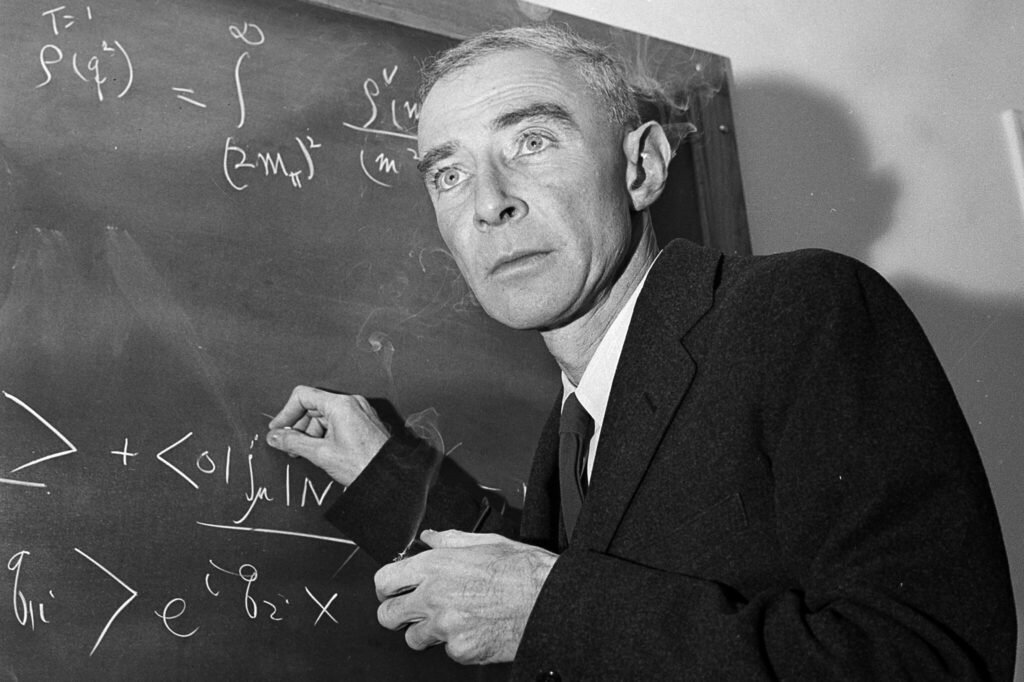The Enabled Prodigy Why Great Results Require Unleashing Extraordinary Talent
The most impressive outcomes in history weren’t the result of a vote. They weren’t born in boardrooms or brainstormed across 15-person cross-functional Zoom calls. They came from a mind. One mind. Often misunderstood, often dismissed, always different—yet critical.

Whether you look at Elon Musk’s multi-industry disruption, Robert Oppenheimer’s atomic vision, Wernher von Braun’s space obsession, or Carroll Shelby’s war on Ferrari, a clear pattern emerges: when one brilliant person is given authority, space, and a team to support them—not constrain them—history changes.
One Person, One Vision, One Result
Ideas are singular. They can only originate in one place: a human mind. Committees don’t generate brilliance—they filter, dilute, and delay it. And when we tether visionaries to average collaborators for the sake of balance or politics, we don’t lift the average—we sabotage the exceptional.
Steve Jobs didn’t workshop iOS with a panel. He didn’t require his team to ratify every choice. He directed, refined, and challenged. And in doing so, he built the most influential tech company on earth. This wasn’t ego. It was execution at the highest level. The very best ideas need freedom, not permission.
Why Committees Fail
What do committees produce? Safety. Risk diffusion. Mediocre consensus. What they rarely produce is a bold new direction. Committees aren’t designed to invent—they exist to protect.
And yet, modern workplaces are optimized for comfort. We celebrate alignment, not originality. We praise compliance, not clarity. It’s why nothing remarkable happens inside most companies—only what’s expected, what’s budgeted, and what can be blamed on someone else.
The Prodigy Problem
The rare individuals who consistently generate winning ideas—the “enabled prodigies”—don’t flourish under excessive oversight. They don’t need a weekly one-on-one to check their pulse. What they need is room. Resources. Autonomy. A clear objective and the freedom to achieve it.
The irony? The more capable someone is, the less likely they are to want control—and the more likely management is to impose it. This mismatch kills progress. It turns genius into frustration and opportunity into attrition.
What would happen if you built a workplace not around hierarchy, but around horsepower?
The Gifted and Talented Workplace
What would happen if you built a workplace not around hierarchy, but around horsepower? What if you treated every hire as if they were gifted and talented? What if you got out of their way and just gave them a target?
This doesn’t mean abandoning structure. It means managing at the point of hire, not at every checkpoint afterward. It means trusting people to own outcomes—not just tasks. It means believing in expertise, not micromanaging it.
Why Most Work Is Designed for the Average
Much of today’s work structure exists not to enable the best, but to contain the average. It’s an operating system designed by geniuses and run by committees. Even worse, it’s a legacy of internal politics, bad past hires, and arbitrary process evolution—not conscious design.
What we see is the death spiral of creativity:
- Superfluous meetings to plan work that doesn’t require planning
- Hand-offs that introduce delay and reduce accountability
- Monitoring and modeling that outshine execution itself
- Workers reduced to redundant roles, disconnected from outcomes
FlashPointLabs: How We Enable Talent
At FlashPointLabs, we built our business around a different model:
- Each consultant owns one engagement at a time—end-to-end.
- No needless hand-offs. Our consultants are writers, analysts, strategists, and implementers.
- No redundant reporting loops. Our clients work with one person who absorbs their voice and delivers.
- No planning for planning’s sake. We embrace adaptive execution and lean methodology.
We reject the 2% paid search click-through rate. We don’t sell impressions. We help clients create value-rich content that matches how people actually buy: through discovery, trust, and proof.
Execution Over Explanation
The best work we’ve ever delivered didn’t start in a meeting. It started with clarity. A client objective. A single point of ownership. Then we moved. Fast. Cohesively. Intelligently. The result? More quality, more speed, lower cost.
Conclusion: Get Out of the Way
When you hire good people, let them be great. When you see talent, don’t clip it—equip it. When you feel tempted to double-check, to re-review, to step in—ask yourself if you’re enabling or interrupting.
The enabled prodigy isn’t just a romantic notion—it’s a productivity model. One that works. One that wins. And one that’s waiting to be unleashed in your own team.





